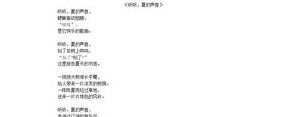一、find的使役动词例句?
find不是使役动词,是一个真正意义上的实义动词,译为发现、找到,详解如下。
英语中使役动词是表示使、令、让、帮、叫等意义的不完全及物动词,主要有leave(离开)、get(得到)、keep(保持)、make(使、令)、let(让)、help(帮助)、have(有、让、从事、允许、拿)等。使役动词后接受词,再接原形不定词作受词补语。
二、find作为使役动词用法?
find译为寻找,不是使役动词,详解如下。
三、使役动词和感官动词的句子。?
1、使役动词的句子例句:
使役动词有:let, make, have
1、Let me help you.
2、The boss often make the workers do very difficult work.
3、Tom had his brother bought a book for him.
……
2、感官动词的句子例句:
感官动词有:
feel, hear, see, watch, notice, observe, find,……
1、I often hear Mary sing in her room.
2、We saw Peter come into the house.
3、I notice them playing basketball on the playground.
4、I found Tom playing the computer games.
四、find的用法归纳及短语?
1、 表示“找到”,其后可接双宾语;若双宾语交换位置用介词 for引出间接宾语。
Can you find me a hotel?
=Can you find a hotel for me?
你能给我找一家旅馆吗?
found 后为复合宾语:
We found him a good teacher. (=We found that he was a good teacher.) 我们发现他是位好老师。
2、 表示“发现”时,其后可接各种形式的复合结构:
(1) 宾语+名词作宾语补足语。如:
You'll find it a difficult book. 你会发现它是一本难懂的书。
有时可在宾语补足语前加上to be。
You'll find it to be a difficult book. 你会发现它是一本难懂的书。
(2) 宾语+形容词作宾语补足语。
He found the room empty.
他发现房间是空的。
I found the book easy.
我觉得这书读起来比较容易。
We find the story (to be) very interesting.
我们发现这个故事很有趣。
(3) 宾语+副词作宾语补足语。
Did you find her in?
你发现她在家吗?
I went to her house but I found her out. 我到她家发现她不在家。
用作宾语补足语的副词通常只能是in, out, up, down, upstairs, downstairs等表示处所的副词小品词,而不能是其他普通副词。
(4) 宾语+不定式作宾语补足语。
He found the patient to be a small boy. 他发现病人是一个小男孩。
用作宾语补足语的不定式通常为to be(且通常可以省略),但当find用于被动语态时,可以用其他动词。
Her blood was found to contain poison. 她的血液里被发现有毒。
He was found to have helped himself to public money. 他被发现挪用了公款。
(5) 宾语+现在分词作宾语补足语。如:
I found him lying on the floor.
我发现他躺在地板上。
I found him standing at the door. 我发现他正站在门口。
(6) 宾语+过去分词作宾语补足语。
He found the door locked.
他发现门锁上了。
He found the city much changed. 他发现这个城市发生了巨大的变化。
(7) 宾语+介词短语作宾语补足语。
We found her in tears.
我们发现她在哭泣。
We found the map quite out of date. 我们发现这地图已完全过时。
另外还要注意“find+形式宾语it+宾语补足语”结构。如:
I find it easy to get on with her. 我发现她很容易相处。
He found it easy to earn extra money. 他发现赚点外快很容易。
I found it interesting being back at school again. 我发现再次回到学校很有意思。
3、 其后有时可接 that 从句。如:
I found that the book was very interesting. 我发现这本书很有趣。
They found that he was no longer working there. 他们发现他已经不在那儿工作了。
He found (that) no one could answer his question. 他发现没有人能回答他的问题。
When he arrived, he found that she had gone. 当他到达时,他发现她已经走了。
后接 that 从句时,只要句型适合且不影响原意,有时可转换成复合结构,如上面的前面两句可转换为:
I found the book very interesting.
They found him no longer working there.
但是,上面的最后两句不适合这种转换,因为从句中用了情态动词或完成时态。
4、 用于 find oneself, 主要用法:
(1) 后接宾语补足语,含有出乎意料的意味,表示(突然)发现自己处于某种状态或来到某地方。如:
He woke up and found himself in hospital. 他醒来时发现自己在医院里。
He returned to England to find himself famous. 他回到英国,发现自己竟出了名。
(2) 表示发现自己的真实能力、性格、愿望等。如:
Mary tried several jobs but at last found herself as a teacher. 玛丽试做了几种工作,但最后发现自己还是适合于当老师。
(3) 指某人身体方面的自我感觉。如:
How do you find yourself today? 今天你觉得身体怎样?
五、find有什么意义吗?
说到find这个单词,很多人都知道意思是找到、找回。除了这类意思,find还有什么意思呢?今天,我们就一起看一下find的用法。
首先,我们看一下find做动词的用法。
1、We've found a great new restaurant near the office.我们在办公处附近发现了一家挺好的新餐馆。这句话中found是find的过去分词,意思是发现、碰到,含有意外或偶然的意味。
2、I managed to find a solution to the problem.我设法找出了解决问题的办法。这句话中find的意思是发现、查明、求得,通常指经过寻找、研究或思考找出。
3、Can you find me my bag?你能帮我找我的包吗?这句话中find的意思是找到、找回。
4、You may find it hard to accept your illness.你可能觉得难以相信自己患病。这句话中find的意思是认为、感到。
5、How are we going to find 5 000 for a car?我们哪里有5 000英镑买车呢?这句话中find的意思是现有、能拿出。
6、Water will always find its own level.水总会自行流平。这句话中find的意思是自然到达、达到。
7、How do you find the accused?你如何裁定被告?这句话中find的意思是裁决、判决。
其次,我们看一下find做名词的用法
1、Our new babysitter is a real find .我们新来的临时保姆是难得的好保姆。
这句话中find的意思是发现物、被发现的人,尤指有趣、有价值或有用者。
考古的重大发现可以表达为an important archaeological find。
今天,关于find的用法就说这么多,您都知道了吗?如果文章对您有帮助,请您关注、点赞、评论。
六、find和动词搭配的短语?
1/find释义:
vt. 查找,找到;发现;认为;感到;获得
vi. 裁决
n. 发现
2/例句:
I've found the wrong result of this experiment!
我发现了这个实验的错误结果!
3/find和动词搭配的短语有:
find oneself自我感觉;发现自己处于某种状态;发现自己的能力
find outv. 找出,查明;发现,揭发
try to find寻求;寻找
only to find结果却发现(表达出人意料或不愉快的意思)
find whatv. 查找内容



![“笑死人不偿命的搞笑经典句子”[呲牙] 1、不装了](https://www.qiushile.com/data/attachment/portal/202411/04/owhix5gwkvf.jpg.thumb.jpg)




























